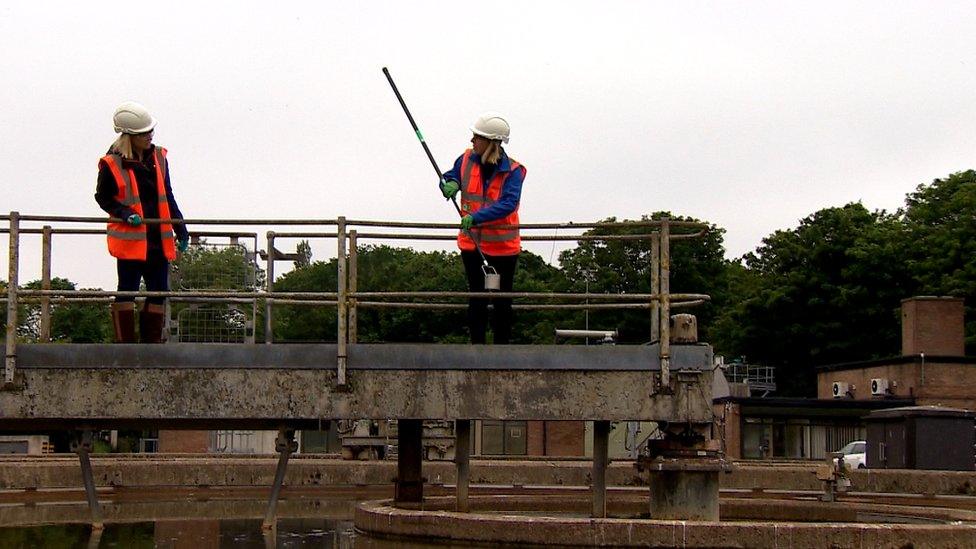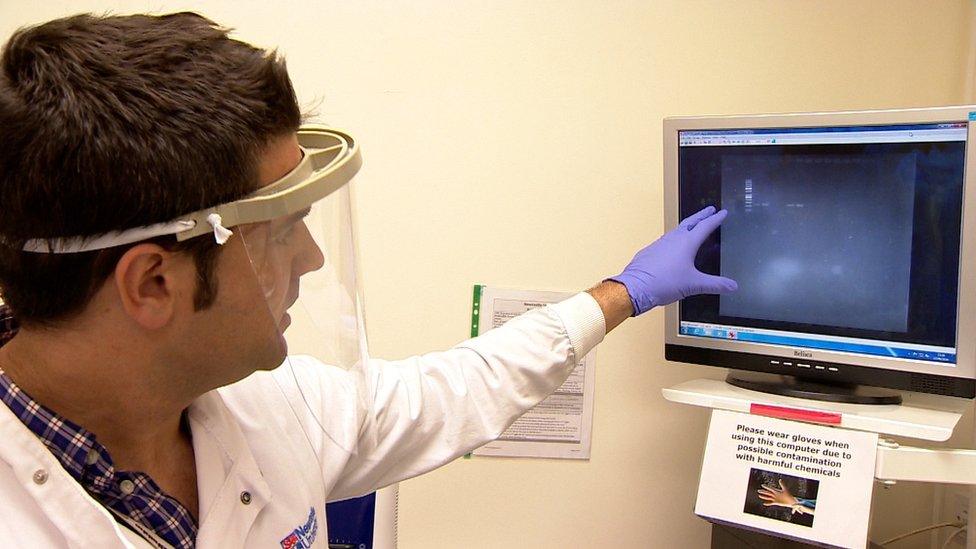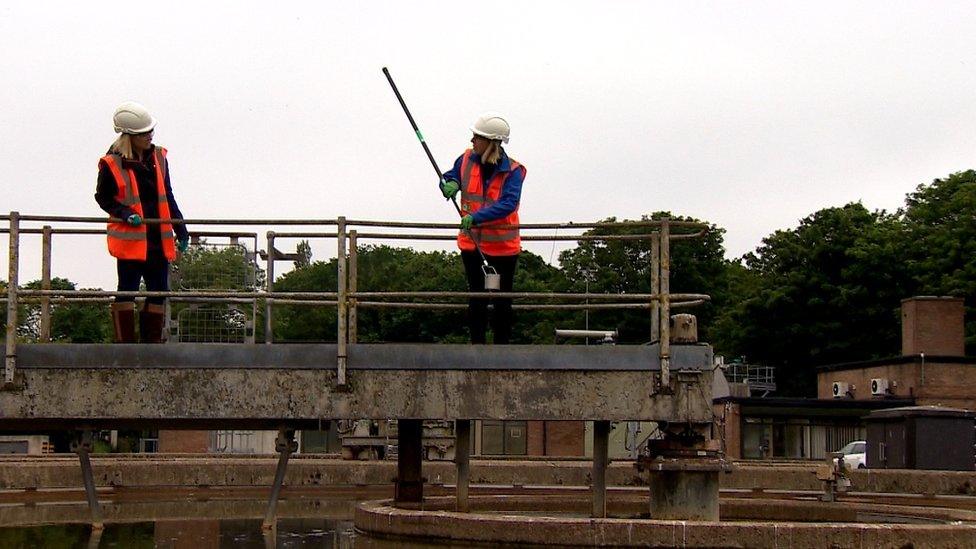Covid-19: Sewage testing ramped up in England
- Published

Samples are being collected at wastewater treatment plants and sent to a central lab for analysis
The government has ramped up its programme to analyse wastewater for early signs of coronavirus.
The sewage-testing programme now covers two-thirds of England's population.
Scientists discovered early in the pandemic that genetic fragments of the virus could be detected in sewage.
Samples are now being are taken at wastewater treatment plants and sent to a new lab in Exeter that is dedicated to analysing wastewater.

The genetic 'signature' of the coronavirus can be detected in a sample of wastewater
The programme has supported the detection of local outbreaks or the presence of variants of concern, which it can link to specific communities via the sewage treatment network.
Dr Jenny Harries, chief executive of the UK Health Security Agency, described it as "an additional detection system" for Covid-19. "It is enabling us to respond more effectively to outbreaks and better protect citizens."
And since it can cause infections without any symptoms, Dr Harries added that it "helps us understand where it may be circulating undetected".
Earlier this week, Health Secretary Matt Hancock said that the approach was being used to monitor the Indian variant of the virus and to track its spread.
Because the testing is at a community level, it has helped guide some local councils to direct their testing and public health guidance. Luton Borough Council, after seeing an increase in cases of the coronavirus, used the information from wastewater testing to "understand where to put additional activity".
"It's particularly useful to see where we have the variants so we can target our testing," said Luton's director of public health, Lucy Hubber.
Prof Andrew Singer, from the UK's Centre for Ecology and Hydrology, played a key role in the scientific effort to establish this wastewater-based epidemiology effort in the UK.
"The scale of the programme that has been created in the past year is truly remarkable," he told BBC News.
"Well over 500 locations are being monitored for coronavirus, and many of them sampled at least four days a week, thereby generating an enormous amount of data on the prevalence of the virus across the UK.
"And this will live on in a post-Covid world by searching for other pathogens in wastewater, like influenza, so that makes this programme one of the few silver linings from the pandemic."
Related topics
- Published2 July 2020
